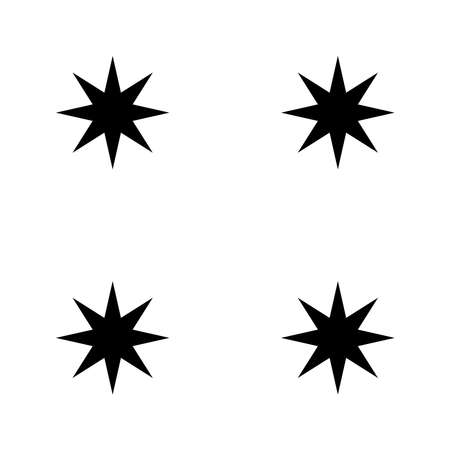1. Introduction: Astrology’s Popularity in the UK
Astrology, particularly the fascination with sun signs, has woven itself into the fabric of British society in ways both subtle and overt. Whether you find yourself chatting over a pint at the local pub or making small talk by the office kettle, conversations about star signs are never too far away. The British have a unique knack for combining scepticism with playful curiosity—astrology is often approached with a raised eyebrow and a knowing smile, yet it remains a staple of magazine columns, daily newspapers, and even dating app profiles. This enduring interest begs the question: why do sun sign stereotypes persist so strongly within UK culture? From friendly banter among mates to light-hearted icebreakers at social gatherings, these astrological archetypes have become a cultural shorthand for personality traits and social dynamics. In this article, we’ll delve into how and where these stereotypes surface most in British life, exploring both the truths and the myths that keep them alive.
2. Common Sun Sign Stereotypes and Their British Flavour
When it comes to sun sign stereotypes, the British have a uniquely dry wit and penchant for understatement that colour their perceptions. While astrology is enjoyed globally, in Britain it often takes on a tongue-in-cheek edge, blending classic archetypes with local quirks and colloquialisms. Let’s have a proper gander at how each sun sign is painted in the collective British imagination—sometimes spot-on, other times as fanciful as a soap opera plot twist.
Sun Sign |
Stereotype (UK Style) |
Common Colloquialisms/Examples |
|---|---|---|
Aries |
Loves a good row; always first in the pub quiz team line-up | “Can’t sit still”, “Bit of a live wire” |
Taurus |
Stubborn as an old boot; appreciates a decent cuppa and home comforts | “Creature of habit”, “Likes things just so” |
Gemini |
Chatterbox; knows all the neighbourhood gossip before it hits the WhatsApp group | “Nosey parker”, “Can talk for England” |
Cancer |
Mumsy type; always brings out biscuits and sympathy during a rainy day moan | “Soft as butter”, “Always got your back” |
Leo |
Loves being centre stage, even if it’s just at karaoke down the local; never says no to a bit of sparkle or drama | “All mouth and trousers”, “Life and soul of the party” |
Virgo |
Picky about tea strength and grammar; has a spreadsheet for every occasion, including the annual summer fete rota | “Fuss-pot”, “Neat as a new pin” |
Libra |
Can’t choose between Bakewell tart or Victoria sponge at tea time; master of smoothing over family spats at Christmas dinner | “Sitting on the fence”, “People-pleaser” |
Scorpio |
Keeps secrets better than MI5; gives you the look when you’re telling porkies | “Dark horse”, “Wouldn’t say boo to a goose (until they do)” |
Sagittarius |
The first to book a cheap Ryanair flight out of Stansted; always up for a laugh or a last-minute road trip to Blackpool | “Free spirit”, “Bit of a wanderer” |
Capricorn |
Works hard, plays hard—but only after making sure everyone paid their share for the curry night; quietly ambitious like Alan Sugar in trainers | “Old head on young shoulders”, “Gets things done” |
Aquarius |
The resident oddball with wild ideas about recycling bins or new ways to organise the pub quiz; marches to the beat of their own drum kit | “Bit eccentric”, “Ahead of their time” |
Pisces |
Easily swept away by romcoms or gloomy weather; offers endless cups of tea and emotional support to mates in crisis (even at 3am) | “Dreamer”, “Heart on sleeve” |
These playful stereotypes reveal not only how sun signs are interpreted but also how the British penchant for humour, understatement, and local flavour shapes these perceptions. Whether taken seriously or with a pinch of salt, such descriptions have found their way into everything from workplace banter to cheeky horoscopes in weekend tabloids—showing how astrology remains woven into daily life, albeit with an unmistakably British twist.

3. Fact or Fiction? Unpacking the Truths Behind the Tropes
When it comes to sun sign stereotypes in British society, it’s all too easy to laugh off the idea that “all Geminis are two-faced” or “Scorpios can’t be trusted.” But is there any substance to these astrological labels, or are they just playful banter over a cuppa at the office? To get to the heart of the matter, we need to look beyond tabloid horoscopes and delve into both social studies and everyday observations from across the UK.
The Academic Angle: What Do Studies Suggest?
Several British sociological surveys have explored whether sun sign stereotypes hold up under scientific scrutiny. For instance, a study by The British Psychological Society found little evidence linking personality traits with star signs. While some individuals claimed their zodiac descriptions fit them “to a tee,” this was often attributed to the Barnum effect—the tendency for people to accept vague, generalised statements as personally meaningful. In essence, our national penchant for self-deprecating humour might make us more willing to play along, even if deep down we know it’s all a bit tongue-in-cheek.
Everyday Life: Stereotypes in Action
Despite academic scepticism, sun sign stereotypes do crop up in everyday British life. Whether it’s mates joking about Cancerians being too sensitive during pub quizzes or someone blaming a Virgo colleague’s meticulousness for their obsession with spreadsheets, these stereotypes serve as a kind of social shorthand. They’re woven into banter and small talk—especially in multicultural cities like London, where conversations about astrology bridge gaps and spark camaraderie. However, most Brits approach these tropes with a healthy dose of irony; after all, poking fun at ourselves is practically a national pastime.
Does It Really Matter?
The real-world impact of sun sign stereotypes in Britain seems more cultural than consequential. While some people may use astrological clichés to break the ice or justify behaviour (“Sorry I’m late—classic Pisces!”), few take them seriously enough to let them affect major decisions. In fact, social research suggests that using these labels is less about belief and more about belonging—a way to foster connection in an otherwise reserved culture. So while the truth behind the tropes is shaky at best, their enduring popularity says more about British wit and social rituals than it does about the stars themselves.
4. Media, Memes, and Tabloid Horoscopes
British media has long played a pivotal role in amplifying and sometimes distorting the public’s understanding of sun sign stereotypes. From the cheeky banter of morning radio hosts to the ever-present horoscope columns in red top tabloids like The Sun or The Mirror, astrological archetypes have become entrenched in daily British life. The sensationalist style of these publications often leans into exaggerated traits: Geminis as gossips, Leos as drama queens, Capricorns as chronic workaholics. But is this just harmless fun or does it reinforce lazy thinking about personality?
Let’s break down how various segments of British media contribute to the narrative:
| Media Type | Typical Approach | Impact on Stereotypes |
|---|---|---|
| Tabloids (“Red Tops”) | Sensational daily horoscopes, bold claims, playful jabs | Reinforce stereotypes for entertainment value; low expectation of accuracy |
| Broadsheets | Occasional lifestyle features, sceptical tone | More critical analysis; sometimes debunk myths but rarely change perceptions |
| Social Media & Memes | Bite-sized jokes and viral content (e.g., “Only a Virgo would do this”) | Spread stereotypes quickly among younger audiences; blur lines between parody and belief |
| TV & Radio | Light-hearted horoscopes, celebrity interviews referencing star signs | Normalise casual astrology chat; keep stereotypes circulating in mainstream conversation |
The Rise of Online Banter and Its Influence
The digital age has brought a fresh twist to astrological tropes. British Twitter threads and Instagram meme accounts thrive on poking fun at sun sign quirks—think Scorpios being accused of plotting revenge over a spilled pint or Libras being indecisive about which pub to choose. While much of this is tongue-in-cheek, it also means that certain clichés are perpetuated more widely and rapidly than ever before.
Satire or Sincerity?
For many Brits, reading their star sign in the morning paper is less about seeking cosmic truth and more about participating in a shared cultural joke. Yet, when repeated enough, even the most outlandish character sketches can subtly shape expectations within social groups or workplaces. A Sagittarius might shrug off a missed deadline with “What did you expect? I’m a free spirit!”—a line borrowed straight from tabloid humour.
The Crossroads of Tradition and Trend
This fusion of old-school newspaper horoscopes with modern meme culture creates an environment where sun sign stereotypes are both mocked and maintained. It’s a distinctly British blend of irony, scepticism, and affection for tradition—one that keeps astrology firmly embedded in the national psyche, even as attitudes shift towards critical thinking. Whether we’re eye-rolling at the stars or secretly checking what Mercury’s up to today, the media’s role in shaping these narratives is undeniably central.
5. Class, Diversity, and Identity: Who Believes What?
One of the more fascinating aspects of sun sign stereotypes in British society is how these beliefs intersect with class, regional, and generational divides. In a country where social identity is still shaped by postcode and accent as much as aspiration, the way people engage with astrology can say a lot about their background—and vice versa.
Astrology and Class: Old Habits Die Hard
Among the British middle classes, especially in metropolitan areas like London and Manchester, there’s often a self-aware, tongue-in-cheek approach to horoscopes—one might read their star sign over brunch but dismiss it as “a bit of fun.” Yet for some working-class communities, particularly where alternative spiritualities have long provided solace or structure outside traditional institutions, sun signs can be taken more seriously. The stereotype that only “the gullible” believe in horoscopes is reductive; rather, it reflects who gets to treat such beliefs ironically and who finds real meaning in them.
Regional Accents: North vs South
The north-south divide in Britain shows itself in sun sign attitudes too. In some parts of the North East and Scotland, there’s an earthy scepticism about “that horoscope nonsense”—but equally, you’ll find tight-knit communities where sharing a star sign trait becomes part of local banter. Meanwhile, cosmopolitan southern cities often see astrology woven into yoga classes or dinner party chatter, blending with other lifestyle trends.
Generational Shifts: From Baby Boomers to Gen Z
Younger Brits—especially Millennials and Gen Z—are embracing astrology anew, often through Instagram memes or apps like Co-Star. For them, sun signs are less about fate and more about self-expression and connection. This contrasts with older generations, who may recall Mystic Meg’s columns in The Sun but regard astrology as harmless superstition at best. As Britain becomes more diverse and digitally connected, these generational differences are becoming even starker—with sun sign stereotypes acting as both cultural shorthand and subtle forms of rebellion against the mainstream.
Ultimately, whether you see star sign stereotypes as cheeky escapism or a genuine lens on personality may depend as much on your postcode and peer group as your date of birth. In modern British society, belief in sun signs offers a surprising window onto questions of class, diversity, and identity—often revealing more about us than we’d expect.
6. Cross-Cultural Perspectives: Britain vs. the Rest
When it comes to sun sign stereotypes, every culture adds its own flavour to the zodiac tapestry. Britain’s approach is particularly fascinating, often blending a dry wit and scepticism with a surprising fondness for astrological banter. But how does this compare to attitudes elsewhere in the world?
The British Zodiac Lens: Wit, Irony, and Tabloid Tales
Across the UK, astrology is frequently encountered in the daily pages of tabloids or as light-hearted conversation fodder at the pub. There’s a certain tongue-in-cheek charm in how Brits discuss star signs—whether it’s blaming Mercury retrograde for train delays or playfully attributing stubbornness to their mate’s Taurus nature. Unlike some cultures that take horoscopes more seriously or even consult astrologers for life decisions, many Brits enjoy poking fun at both the science and themselves.
A Global Contrast: Astrology’s Varied Role
Globally, attitudes towards sun sign stereotypes can be markedly different. In places like India or China, astrology often carries deep cultural significance, influencing everything from marriage to business ventures. Meanwhile, in parts of the US or Europe, astrology enjoys a resurgence among younger generations as both meme-worthy entertainment and personal insight tool—but still usually with a level of earnestness less common in British circles.
The Unique British Blend
What makes the UK stand out is this distinct blend of cynicism and curiosity. The British are known for their love of irony, and even self-proclaimed sceptics rarely miss an opportunity to engage in some astrological banter. While few might actually plan their week by their horoscope, many wouldn’t pass up reading Mystic Meg’s latest predictions “just for a laugh.” This playful scepticism is woven into the fabric of British social life—a subtle dance between belief and disbelief that feels inherently British.
Ultimately, while sun sign stereotypes are universal, the way they’re navigated in Britain—equal parts mockery and mild fascination—offers a unique window into the national psyche. It reflects not just attitudes toward astrology but also broader cultural themes: humour as a coping mechanism, social bonding over shared quirks, and an enduring affection for all things eccentric.
7. Conclusion: The Real Impact of Sun Sign Stereotypes
Reflecting on the enduring nature of sun sign stereotypes in British society, it becomes clear that these astrological labels are more than just playful banter at the pub or ice-breakers at a dinner party. Their staying power lies in their ability to offer a shared language for navigating personality differences, whether in the workplace, social circles, or even within families. While most Brits may claim not to take astrology seriously, the subtle influence of these stereotypes is undeniable—from a knowing wink about a “typical Gemini” to the gentle ribbing of a “stubborn Taurus.” These cultural shorthand references shape expectations and interactions, sometimes reinforcing self-perceptions or justifying behaviours with a celestial nod. In the broader context of British reserve and humour, sun sign stereotypes provide a safe space for introspection and expression without getting too earnest—a very British balancing act. Ultimately, their real impact lies not in determining destinies but in reflecting collective hopes, anxieties, and the perennial human desire to find patterns amidst life’s chaos. Whether we embrace them or gently mock them, these stereotypes remain woven into the fabric of British social life, colouring conversations and shaping how we see ourselves and each other.

